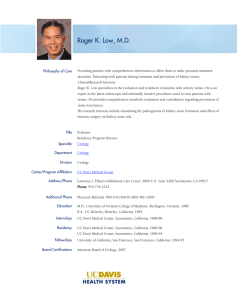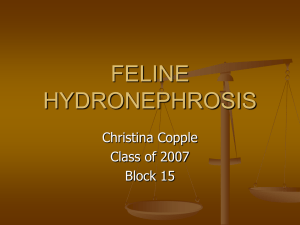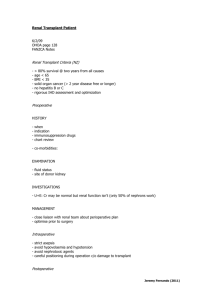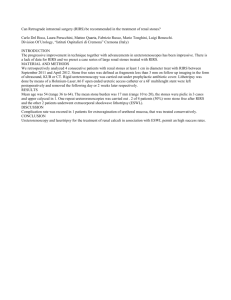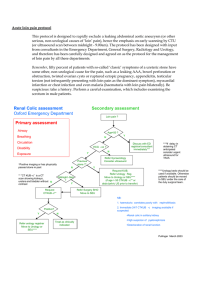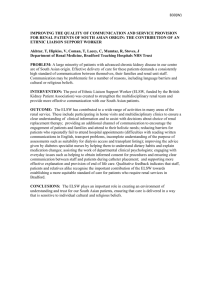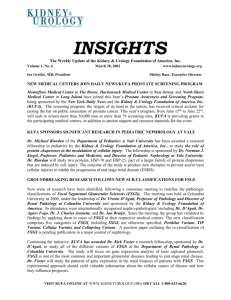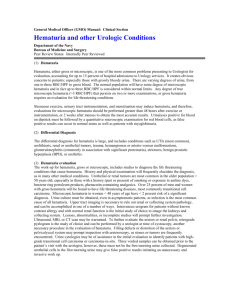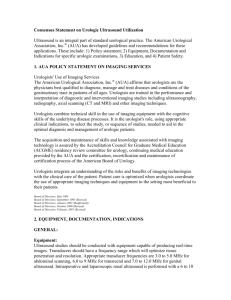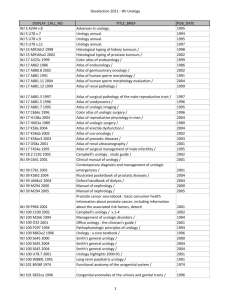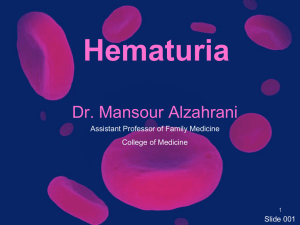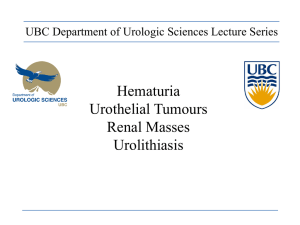UROLOGY/NEPHROLOGY
advertisement
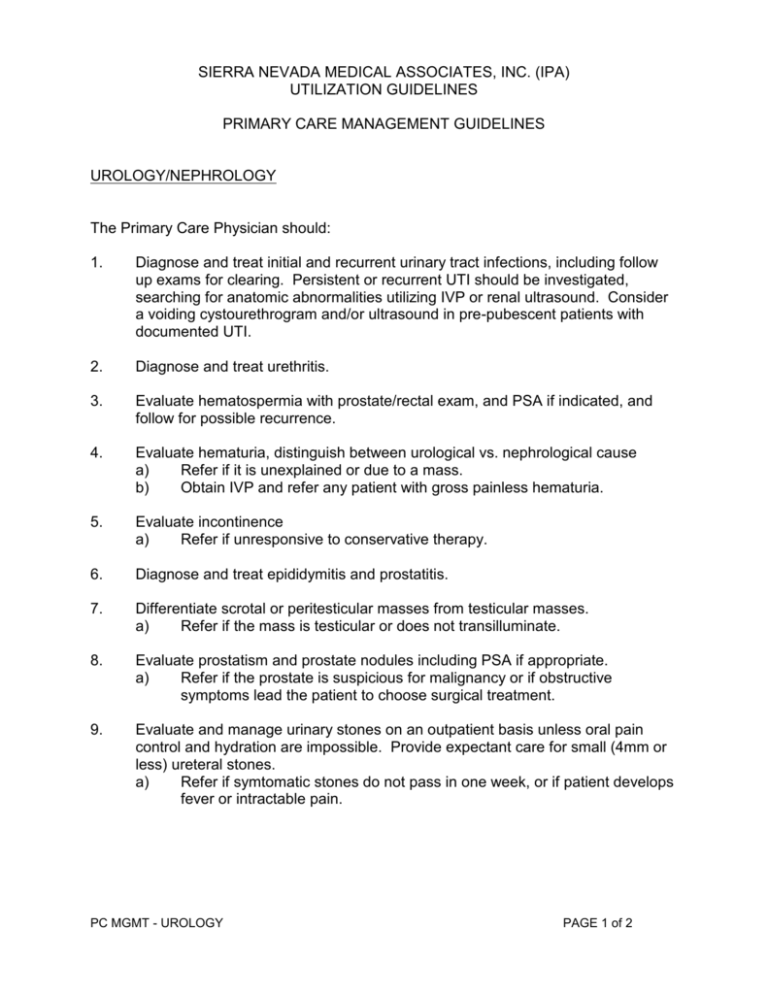
SIERRA NEVADA MEDICAL ASSOCIATES, INC. (IPA) UTILIZATION GUIDELINES PRIMARY CARE MANAGEMENT GUIDELINES UROLOGY/NEPHROLOGY The Primary Care Physician should: 1. Diagnose and treat initial and recurrent urinary tract infections, including follow up exams for clearing. Persistent or recurrent UTI should be investigated, searching for anatomic abnormalities utilizing IVP or renal ultrasound. Consider a voiding cystourethrogram and/or ultrasound in pre-pubescent patients with documented UTI. 2. Diagnose and treat urethritis. 3. Evaluate hematospermia with prostate/rectal exam, and PSA if indicated, and follow for possible recurrence. 4. Evaluate hematuria, distinguish between urological vs. nephrological cause a) Refer if it is unexplained or due to a mass. b) Obtain IVP and refer any patient with gross painless hematuria. 5. Evaluate incontinence a) Refer if unresponsive to conservative therapy. 6. Diagnose and treat epididymitis and prostatitis. 7. Differentiate scrotal or peritesticular masses from testicular masses. a) Refer if the mass is testicular or does not transilluminate. 8. Evaluate prostatism and prostate nodules including PSA if appropriate. a) Refer if the prostate is suspicious for malignancy or if obstructive symptoms lead the patient to choose surgical treatment. 9. Evaluate and manage urinary stones on an outpatient basis unless oral pain control and hydration are impossible. Provide expectant care for small (4mm or less) ureteral stones. a) Refer if symtomatic stones do not pass in one week, or if patient develops fever or intractable pain. PC MGMT - UROLOGY PAGE 1 of 2 10. Evaluate male factor infertility with a sperm count, and treat readily correctable factors such as inhibitory drugs. a) If organic impotence or make factor infertility are suspected and not readily correctable, the patient should be referred. b) Refer for counseling if a very obvious psychogenic pattern is present. 11. Initiate the evaluation of renal failure with laboratory tests and ultrasound if appropriate. Treat renal failure with dietary advice and by eliminating aggravating factors. a) Consider referral for: i) acute renal failure ii) destructive uropathy iii) 50% reduction in creatinine clearance iv) nephrotic syndrome v) unexplained hematuria or proteinuria. 12. In general, obtain consultation for: a) circumcision if there have been recurrent balanitis or foreskin problems b) larger renal or ureteral stones for consideration of treatment c) suspected torsion d) any abnormal workup or condition resistant to therapy in the absence of anatomical findings PC MGMT - UROLOGY PAGE 2 of 2


